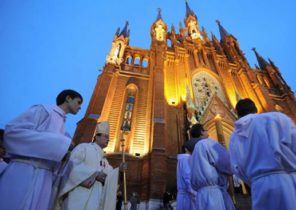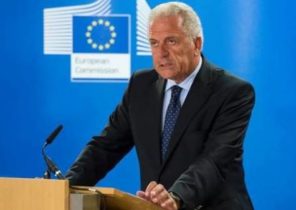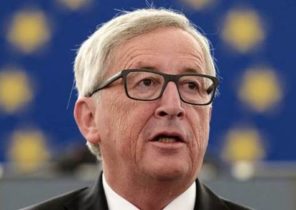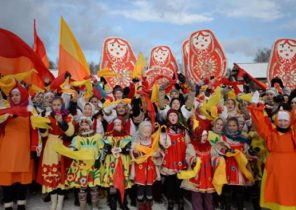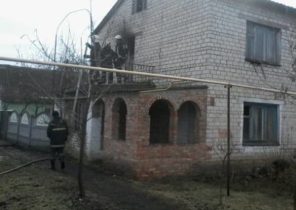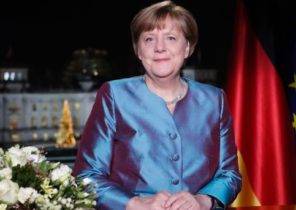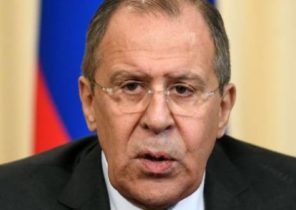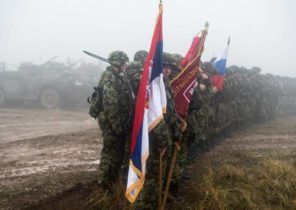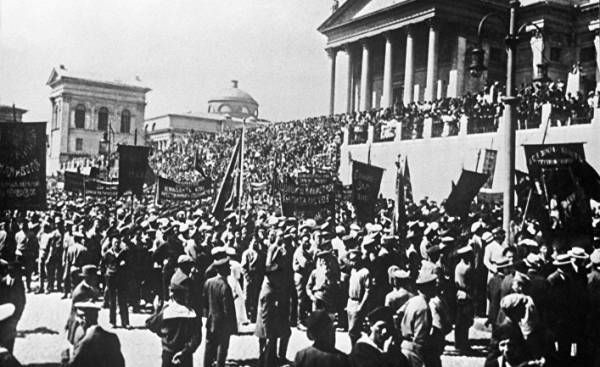
Once a year the leadership of the Soviet Politburo stood on the rostrum of the Lenin mausoleum on red square to take part in the ceremony dedicated to the anniversary of the Bolshevik revolution on 7 November 1917. Revolution day was a working day the festive event. But watching held down tanks, guns, missiles and military, the Soviet leaders somehow kept a stone expression on their faces, no trace of a smile.
In my experience — I lived in Moscow in 1980-e years — I can say that the day of the revolution did not cause the average Russian, especially strong feelings. The extra day off is always nice. Meanwhile, the pompous Communist slogans, the former an essential attribute of an annual event on the red square, didn’t mean anything to most people, but over the years, and for the members of the party.
The stark contrast here was another Soviet holiday, Victory Day over Nazi Germany may 9, 1945 — to which the Russians treated with great reverence. This anniversary was filled with people to sense regardless of, they believed themselves Communists or not. A quarter century after the fall of Soviet Union the Victory Day is a national holiday, and Russian is still proud of his triumph in the Second world war. This victory is a measure of their current identity. It is a rare episode of national unity in the 20th century, scarred by revolution, civil war, dictatorship, organized state terror, famine and other ills.
But the ratio of Russian to 1917 — the February revolution that overthrew Tsar Nicholas II and the October revolution that brought the Bolsheviks to power is much less certain. The survey, published in April by the Levada Center, the most authoritative in Russia, organization of sociological researches showed that 48 percent of respondents mainly positive about the Bolshevik revolution. Approximately 31 percent perceive it as a negative event, and in 21 percent of respondents have difficulty with the assessment.
Mixed feelings of the public indicate, on the one hand, the instinctive feeling that favorable and detrimental aspects of the revolution of 1917 balance each other, and with another — on hesitant fuzzy stance of the Russian state under President Vladimir Putin.
Take the same abdication of the king in the winter of 1917. After the collapse of communism, the Russian Orthodox Church canonized Nicholas and his family — mainly in response to how the Romanovs died.
The Bolsheviks shot the Tsar and his family in July 1918, it was a premeditated act of violence, which reflected the epoch of early communism and the brutal civil war of 1917-1922, armed men in leather jackets. However, the Russian aversion to the massacre does not prevent the realization that the fall of tsarism was not so bad event. In early 1917, it offered greater freedom and social justice a country that for centuries stubbornly rejected both.
Just as then, the political elites, revolutionaries, and ordinary soldiers and workers of factories and plants had experienced the joy, after learning about the departure of the king-retrograde, today it is difficult to recognize among modern Russians nostalgic for the Romanov. In the Levada poll, 52% of respondents called the overthrow of the autocracy “no great loss”, while 34% think exactly the opposite.
The Bolshevik revolution — is another matter. For many Russians, the seizure of power by Vladimir Lenin cannot be separated from the subsequent 20 years of the Communist regime. This period covers not only the horrors of the civil war, but the tyranny of Joseph Stalin, the culmination of which became forced collectivization and the great terror of the 1930-ies, which claimed millions of lives. The suffering etched in the history of every Russian city, every settlement and village.
Putin 1917 stands out as a time of great political and social unrest. The weakened state was not able to exercise control. For this reason, from the point of view of Putin, celebrating the anniversary of the 1917 is not quite appropriate.
After coming to power in 2000, he made his priority the revival of a strong state. Putin sought the approval, opposition to the restoration of order to the chaos, which was established after the collapse of the Soviet Union, and those crazy, free sometimes during the reign of the first post-Communist leader of Russia Boris Yeltsin.
But there is a deeper reason why Putin doesn’t like 1917. It was a time when once the Russian masses were able to take the initiative in their hands. During the cold war, many Western historians have portrayed the Bolshevik revolution as an illegal coup of a sect of political fanatics. Extremists of course, they were, but in the summer and autumn of 1917 the Bolsheviks were able to enlist the support of broader social circles in the army and in the factories. In the end of the February and the October revolution expressed deep discontent and radicalization of the Russian society. And it is very uncomfortable history to Putin, who hates social unrest, political opposition and spontaneous dissent.
Unwanted connotations of 1917 explains why, on 7 November last year, Putin staged a parade, which was reproduced on 7 November 1941. In that year, Soviet troops were sent from the red square straight to the front to fight the Nazis. This ceremony Putin learned from Bolshevism to the Bolshevik revolution. He replaced it with the nationalism of the great Patriotic war, as it is called in Russia the conflict of 1941-1945.
Perhaps one day Russia will be converted to the anniversary of the Bolshevik revolution, to think about the dangers of repressive political systems. But we should not rely on the fact that it will happen soon.
